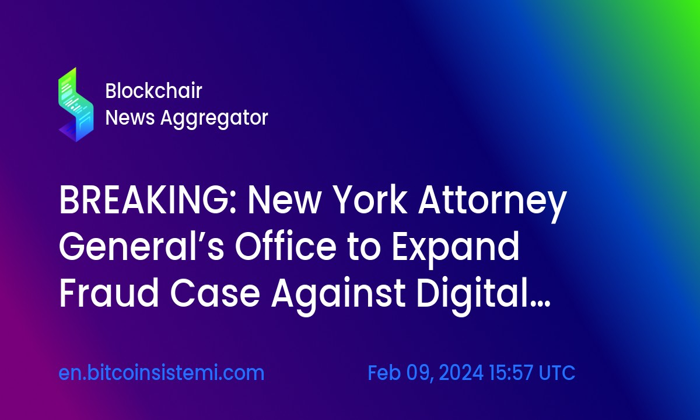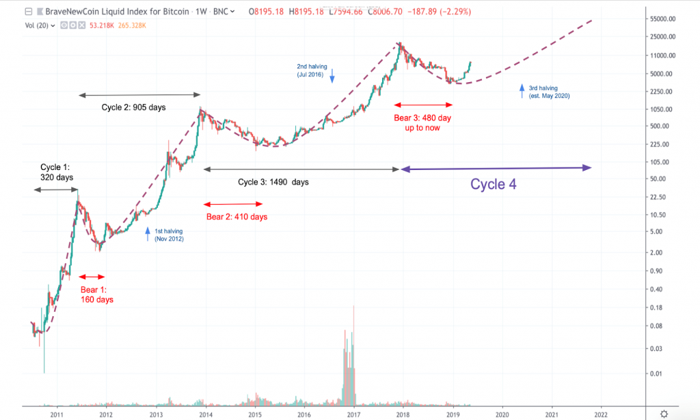The DCG securities fraud lawsuit has emerged as a significant legal battle for the Digital Currency Group (DCG) and its executives, following allegations from New York Attorney General Letitia James. The lawsuit focuses on claims that DCG misled investors about substantial losses incurred by Genesis, particularly a staggering $1 billion loss tied to the downfall of Three Arrows Capital. Recently, a New York judge ruled that most aspects of the civil securities fraud suit can move forward, setting the stage for a potentially explosive trial. Amid ongoing discussions about the Genesis cryptocurrency fraud, the case raises critical questions about transparency and responsibility in the digital asset industry. As Barry Silbert and former Genesis CEO Michael Moro prepare to defend against these claims, many are watching closely for updates in what has become a pivotal moment in Digital Currency Group news.
The ongoing litigation surrounding DCG, commonly referred to as the Digital Currency Group, has sparked significant interest due to the serious allegations of securities fraud leveled by the New York Attorney General’s office. This high-profile case, which involves claims of investor deception related to Genesis and the fallout from the Three Arrows Capital collapse, highlights the challenges faced by crypto firms in maintaining investor trust. The trial not only puts DCG’s practices under scrutiny but also reflects broader concerns about regulatory oversight in the cryptocurrency sector. As the case unfolds, it is essential to consider its implications not only for DCG and Barry Silbert but also for the entire digital asset market. Legal developments like this can profoundly influence the perception of cryptocurrencies and the frameworks governing their operations.
Overview of the DCG Securities Fraud Lawsuit
The New York Attorney General’s lawsuit against Digital Currency Group (DCG) marks a significant moment in the evolving landscape of cryptocurrency regulation. The allegations center around misleading statements made by DCG regarding the losses sustained by Genesis, notably tied to the downfall of the infamous hedge fund, Three Arrows Capital. With the judge ruling that most of the case will move to trial, it raises substantial questions about accountability and transparency in the cryptocurrency sector, particularly concerning high-profile firms engaged in digital asset management.
The judge’s decision brings into focus not just the responsibilities of executives within cryptocurrency firms, such as DCG’s CEO Barry Silbert, but also the broader implications for investors who have a vested interest in the outcomes of such lawsuits. As digital assets continue to attract both institutional and retail investors, understanding the legal accountability of these companies is crucial for maintaining investor confidence and market integrity.
Implications of the New York AG Lawsuit
The New York Attorney General’s lawsuit carries substantial implications for the regulatory environment surrounding digital currencies and related businesses. As cryptocurrencies gain popularity, the scrutiny from regulators is intensifying, as seen with this case against DCG. The outcome could potentially set a precedent for how digital asset firms are monitored and held accountable for their actions, particularly in terms of investor communication and loss management.
For many, this lawsuit is a wake-up call, highlighting the risks associated with investing in digital currencies that are often shrouded in uncertainty. The actions taken by AG Letitia James may prompt other states to pursue similar legal actions, emphasizing the need for transparency and ethical responsibility in cryptocurrencies. This ongoing litigation against DCG is likely to reverberate through the industry, influencing both regulatory measures and investor sentiment.
The Genesis Cryptocurrency Fraud Allegations
Central to the New York AG’s lawsuit are the allegations against Genesis, a firm closely associated with DCG. The claims suggest that Genesis misrepresented its financial standing, specifically denying the serious implications of a $1 billion loss linked to Three Arrows Capital. Such allegations paint a worrying picture for investors who count on these firms for accurate information regarding their investments.
As the case unfolds, the focus on Genesis not only affects its relationship with investors but could also have repercussions for its operational outreach within the cryptocurrency ecosystem. With the lawsuit’s revelations, other companies in the space may rethink their communication strategies and internal risk assessments to avoid similar legal situations in the future.
The Fallout from the Three Arrows Capital Case
The collapse of Three Arrows Capital has triggered a cascading effect across the cryptocurrency market, causing ripple effects that have reached DCG and Genesis. As investors seek clarity over their losses, this case illustrates the interconnected risks within the cryptocurrency sector, where the failure of one entity can jeopardize many others. The ongoing litigation underscores the necessity of robust risk management practices that are essential in the volatile world of digital currencies.
As DCG faces these allegations amidst the backdrop of Three Arrows Capital’s downfall, it prompts a market-wide reassessment of investment strategies. The lawsuit serves as a reminder of the potential pitfalls investors may encounter within the rapidly changing regulatory landscape surrounding cryptocurrency, urging them to consider the credibility and reliability of firms handling their assets.
Barry Silbert’s Response to the Litigation
CEO Barry Silbert’s public stance on the New York AG’s lawsuit against DCG is emblematic of a broader strategy that many executives in the burgeoning field of digital assets often adopt during legal disputes. His claim that the allegations are baseless highlights a common approach where executives aim to preserve stakeholder confidence. Despite the judge’s decision to proceed with the majority of the case, Silbert and his legal team strongly maintain that no securities were sold and that the lawsuit lacks substantive support.
Moreover, Silbert’s strategy may include engaging in public forums to communicate DCG’s viewpoint, aiming to reassure both investors and market participants amid these challenging allegations. This trial could provide Silbert an opportunity to clear the air and establish a renewed framework for investor communication, potentially influencing how other executives navigate similar legal hurdles.
Gemini and Genesis: Settlements Amid Ongoing Litigation
While Gemini and Genesis have opted to settle with the New York Attorney General, the ongoing battle against DCG represents a steadfast commitment to contesting the allegations made against them. Their settlement signifies a complex legal strategy, where careful negotiations were likely key to mitigating immediate repercussions, while DCG and its executives continue to push back. Decision-making during times of crisis is crucial for companies involved in high-stakes litigation, and the contrasting approaches taken by Gemini and DCG serve to highlight different risk management philosophies.
The contrasting outcomes of these settlements compared to DCG’s ongoing litigation could influence investor perceptions in the long term. Investors often analyze how digital asset firms handle legal challenges, which in turn affects their willingness to engage with these companies.”}]},{
Frequently Asked Questions
What is the DCG securities fraud lawsuit about?
The DCG securities fraud lawsuit involves allegations by New York Attorney General Letitia James against Digital Currency Group (DCG) and its executives for misleading investors regarding Genesis’ substantial losses linked to the collapse of Three Arrows Capital. The case centers on claims of false assurances and misrepresentations made to investors about the handling of a promissory note associated with those losses.
How did the judge rule on the DCG securities fraud lawsuit?
On April 11, 2025, a New York judge ruled that most of the civil securities fraud claims against DCG could proceed to trial. However, two claims were dismissed as duplicative, specifically those pertaining to New York’s Executive Law and conspiracy laws.
What are the implications of the New York AG’s lawsuit against DCG?
The New York AG’s lawsuit against DCG has significant implications as it highlights alleged securities fraud in the digital asset sector. If the claims are proven, it could set a precedent for accountability among cryptocurrency firms and establish clearer regulations for how these companies operate in the securities market.
What are Barry Silbert and DCG’s defense against the securities fraud allegations?
Barry Silbert and DCG argue that the allegations in the securities fraud lawsuit are baseless and fail to demonstrate that any securities were sold. They maintain that the claims lack sufficient evidence and emphasize their commitment to contesting the allegations of misleading investors.
How do settlements by Genesis and Gemini impact the DCG lawsuit?
The settlements by Genesis and Gemini with the Office of the Attorney General could potentially impact the DCG lawsuit by creating a narrative of culpability within the industry. However, DCG, Barry Silbert, and former Genesis CEO Michael Moro are still contesting the claims, differentiating themselves from the settlements of their peers.
What role does the Three Arrows Capital case play in the DCG lawsuit?
The Three Arrows Capital case plays a pivotal role in the DCG securities fraud lawsuit as it provides context to the alleged financial mismanagement and significant losses that DCG is accused of misrepresenting. The ties to the collapse of Three Arrows underscore the risks associated with digital currencies and their investments.
What can investors learn from the DCG securities fraud case?
Investors can learn the importance of due diligence and being cautious of overly optimistic claims made by cryptocurrency firms. The DCG securities fraud case emphasizes the need for transparency and accountability within the digital currency industry when it comes to financial disclosures and investor communications.
| Key Points |
|---|
| A New York judge has ruled against DCG’s motion to dismiss the civil securities fraud lawsuit initiated by the state Attorney General. |
| The lawsuit alleges that DCG misrepresented financial facts related to the $1 billion loss of Genesis due to Three Arrows Capital’s collapse. |
| Two claims under New York’s Executive Law and conspiracy laws were deemed duplicative and dismissed by the judge. |
| The case will focus on alleged false assurances regarding losses related to a promissory note not being honored by DCG. |
| While Gemini and Genesis have settled the lawsuit, DCG and its executives are contesting the allegations as unfounded. |
| The judge allowed claims regarding Gemini’s lending program, which are central to the case, to proceed. |
Summary
The DCG securities fraud lawsuit is gaining significant traction as a New York judge has ruled that most of the claims against Digital Currency Group (DCG) will move forward to trial. This ruling is crucial as it underscores the importance of transparency and accountability in the cryptocurrency industry, particularly in light of the serious allegations regarding misleading statements about financial losses. As the case unfolds, it highlights the legal complexities surrounding securities and investor protections in the evolving landscape of digital currencies.
The DCG securities fraud lawsuit has taken a significant turn as a New York judge ruled that most of the civil claims against Digital Currency Group (DCG) and its executives can continue to trial. This legal battle centers on allegations made by Attorney General Letitia James, who asserts that DCG misled investors regarding Genesis’ substantial $1 billion losses tied to the fallout from the Three Arrows Capital case. With the landscape of cryptocurrency under scrutiny, the details surrounding this case have garnered extensive interest in Digital Currency Group news, particularly as it relates to investors’ rights and corporate transparency. While some parties, like Gemini and Genesis, have opted for settlements, DCG, CEO Barry Silbert, and former Genesis leader Michael Moro are firmly contesting the allegations, labeling them as unfounded. As the proceedings unfold, the implications for the crypto industry and investor protection become increasingly critical.
In the ongoing legal saga involving DCG, the financial industry is closely monitoring a significant lawsuit that posits serious allegations of securities fraud against the company and its leadership. The New York Attorney General is at the forefront of this dispute, claiming that misleading communications regarding liquidity issues and the handling of Genesis’ financial setbacks have infringed upon investor trust. This complex litigation echoes other high-profile cases within cryptocurrency, including the ramifications of the Three Arrows Capital scandal. As public interest swells around these proceedings, terms related to corporate responsibility and financial ethics have become pivotal in discussions about the future of digital asset management. The outcomes of this lawsuit could set critical precedents, influencing the regulatory landscape for cryptocurrency players.














